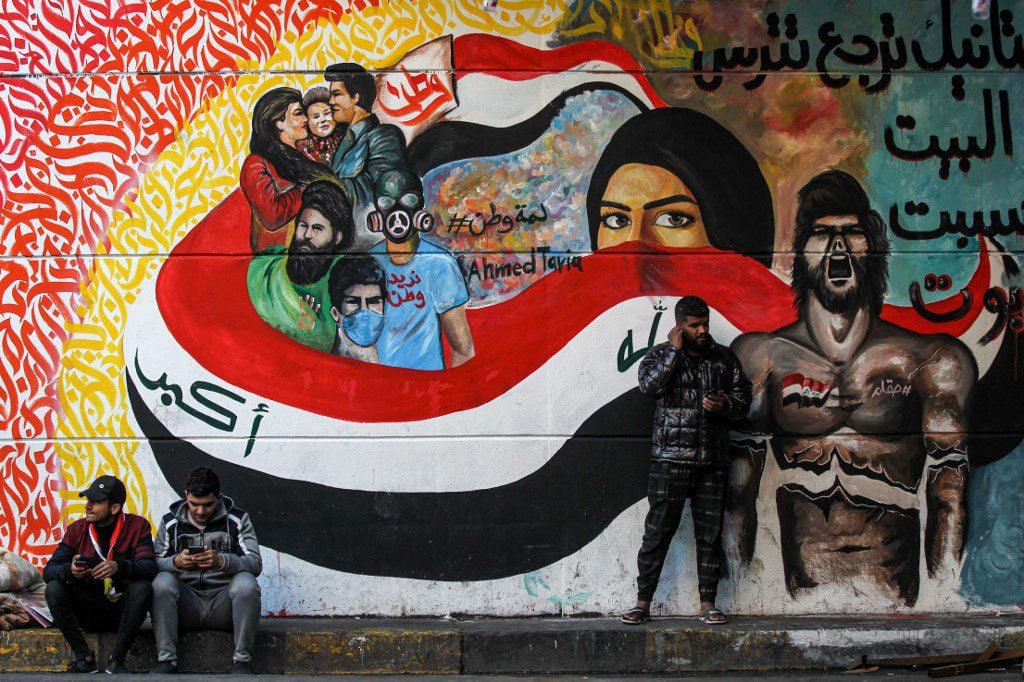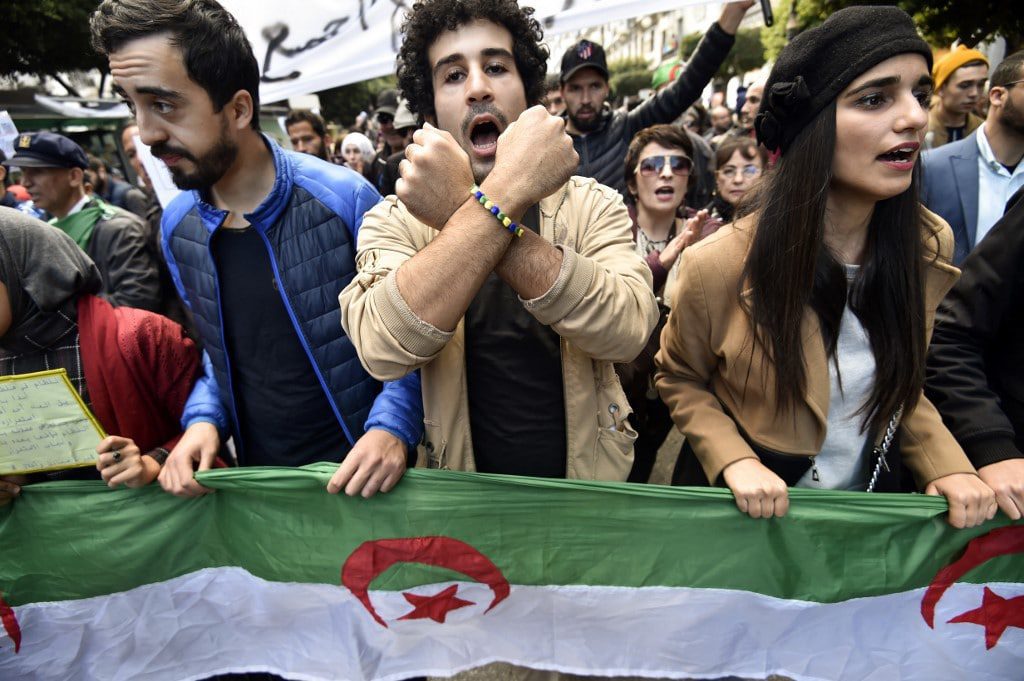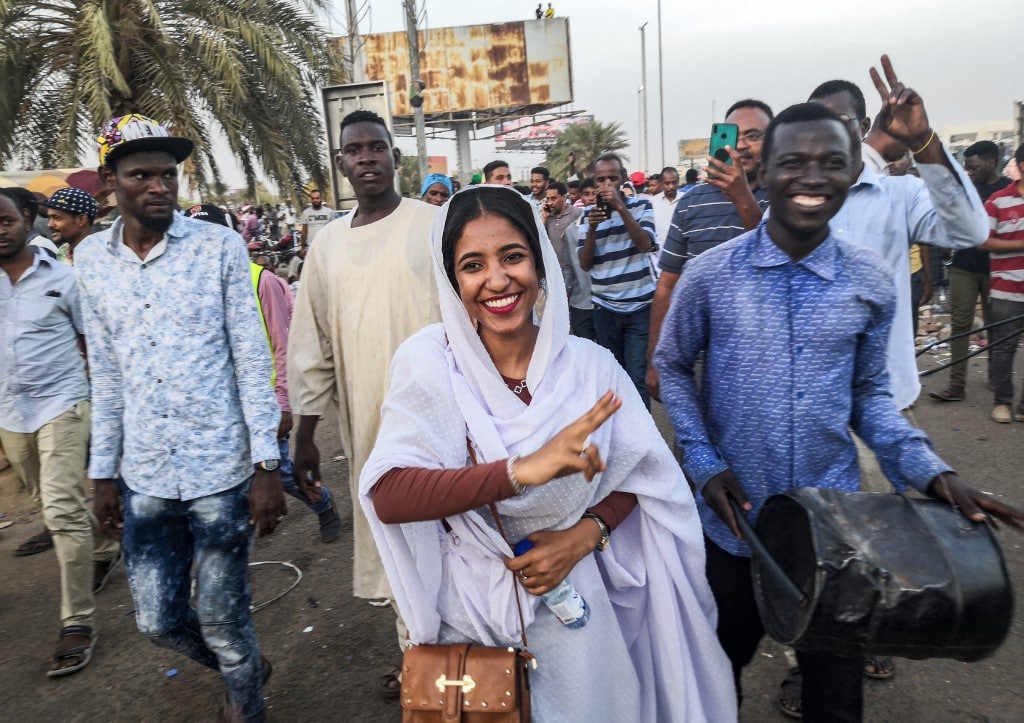Arab Spring – Only by supporting Arab millennials on their terms, Europe can help the brave youth in the Middle East, Laila Al-Zwaini writes.

Riham Yaqoub, nutrition expert and sports instructor, began massive women’s marches in the Iraqi city of Basra in 2018, where corrupt local leaders deprived residents of clean water and electricity. Through body workouts in the gym, she gave women not only muscles but also mental strength and self-confidence. This empowered the women to stand up as equal citizens for a new Iraqi homeland, a watan, and to call their negligent governors to account.
Riham paid for her ambition and vigor with death. She was murdered in broad daylight by masked men on August 19, 2020, as if she were a dangerous opponent from a powerful cartel. And indeed. Young, spontaneous and hopeful as they are, young people just like Riham turn out to be formidable opponents of repressive, negligent regimes, as well as of recruiting Muslim extremists and murderous militias.
How? Since the ‘Arab Spring’ uprisings in 2011, millions of youths in the MENA and beyond have risen to their feet time and again in their ‘civil guerrillas’ against authoritarianism and corruption, sectarianism and extremism, violence and impunity, poverty and hopelessness. And against their own taboos.
EXTREMIST YOUTH
Unlike their extremist peers, these fearless youths fight for a new form of democracy, for their unique identity and personal fulfilment, for the simple freedom to be who they want to be, and with whom.
Will they succeed in getting closer to their dreams? There is hope. But only if the West, especially Europe, radically rethinks its Middle East policy, and considers these youths as serious allies, also at political negotiating tables, and supports them on their terms.
We see the Middle East and North Africa as a ‘ring of instability’ around Europe, and focus our MENA policy mainly on terrorists, refugees and Islam, all ‘threatening our existence and national identity’. On that basis, we close migration deals with dictators, not to solve migration problems but to keep them away from us. We write special anti-terrorism laws which the dictators then use to round up these brave youths as ‘terrorists’, torture them to death, or force them to flee.
MILLENNIALS NOT THE CAUSE OF INSTABILITY
To turn this vicious cycle, we must tightly knit together our policy of ‘Security First’ with ‘People First’. Arab millennials (60 percent of the MENA population are under the age of 25) should no longer be viewed as a cause of instability but as drivers of a positive ‘virtuous cycle’ that can keep other youths away from the lure of terrorists and our shores. Over the years of above- and underground youth protests, I see a slow but unmistakable movement towards a ‘civil state’, rooted in their own local cultures, religions and histories. Or, in Arabic, towards a dawla madaniya.
During the Arab Spring, madaniya started as a popular cry. In July 2011, singer Ramy Essam, also known as ‘the Voice of the Egyptian revolution’, engaged a hopeful crowd of Egyptian youths from far-left communists to ‘Islam First’-Muslim Brothers and even Salafis, to sing along in the sweltering heat in Cairo’s Tahrir Square:
„Kullinâ îd wahda (We are all one hand) / Wa-talabnâ hâga wahda (And we have only one demand) / Madaniya! Madaniya! Madaniya! Madaniya!”
Ramy would later be tortured by the police, and now lives in exile in Sweden. I was there in the Square and felt how ‘Madaniya!’ echoed so powerfully.

PLURIFORM COMMunity
Why madaniya? Literally, madaniya is Arabic for ‘civilization’, ‘urban’, ‘citizen’ or ‘civil’ (as in civil state, civil law, citizenship, etc.). Madaniya also hides a reference to the seventh-century Holy City of Medina, where the first Islamic Ummah started as a pluriform community. And to the 21st century Liberation Squares, Midan, where the common goal unleashed an unprecedented energy and solidarity.
As a slogan, madaniya popped up everywhere: in Cairo, Tunis, Tripoli, Sana’a and Damascus and then, in the second wave of protests since 2018, in Khartoum, Baghdad, Algiers and Beirut. Visible as graffiti on walls, on banners (“We dream of a dawla madaniya!”), and in trendy cafes that became the new debate scenes: “Do you want your coffee salafiya (black) or madaniya (latte)?” People across the region use it mainly for what they don’t want: a non-military, non-authoritarian, non-corrupt, non-theocratic, but also non-atheist, non-tribal, non-sectarian, and likewise no western secular government.
But are they also united in what they do want? That is by no means settled. Still, I argue that the modern ànd historical term madaniya is a powerful carrier to build a new civil state of mind among societies with mainly, but not only, Arab and Islamic origins. This mindset precedes the creation of a civil state. The Arabic madaniya gives local meaning and an ethical basis to global values and concepts as rule of law, citizenship, and human rights. It shows that these values are also defended from within other (than Western) traditions.
TRADITIONAL POETRY
Take Sudan, where a new wave of uprisings flared up in late 2018. The protesters explicitly called their revolution the ‘Madaniya Revolution’. They used traditional poetry to formulate new ideas and unity – despite their ethnic, religious, and political differences. They also painted colorful murals to spark public debate, while young women dressed in the white robes and golden earrings of the historic Nubian kandaka queens, symbolizing their own prominent role in the revolution.
In this way, art and culture became catalysts which, along with the remarkably active role of the Sudanese diaspora in bringing the protests to global attention, accelerated the fall of President Omar al-Bashir in April 2019. In Sudan, madaniya thus actually led to a transition to civilian-led rule, even though half of the government is still military, including Bashir-veterans.
The fact that the call for madaniya is heard throughout the region, is because most people experience the same problems. First, the seriously fractured relationship between citizens and their leaders. There is excessive corruption and cronyism, especially in countries such as Lebanon and Iraq. This can be traced back to the disintegration of the so-called authoritarian bargain, the tacit agreement between the state and its citizens, whereby people (forcibly) exchanged their political and civil rights for social and economic rights, such as free education, public sector jobs, public housing, land reforms, free healthcare and cheap water, energy and fuel supplies.
In reality, this deal – this ‘social contract’ – became the engine for economic and social inequality, nepotism, self-enrichment (fuelled by Western money), persecution of critics, and impunity of perpetrators. This ultimately led to such poverty and hopelessness, especially among the new generation, that this ticking bomb burst in December 2010.

ISLAM AND STATE
Second, there is the highly sensitive and heavily contested relationship between Islam and the state. As a religion, moral compass, and way of life, Islam occupies a very important place in the daily lives of most people in the MENA. But that does not mean that all Muslims, let alone non-Muslim minorities, would accept that Islam and Shari`a become compulsory by law and governance of the state. Certainly not in the draconian form of Daesh (ISIL).
Sudan’s new civilian government was quick to abolish the harsh Shari’a-penalties for apostasy and, as was the case, for drinking alcohol by non-Muslims. But abolishing laws does not change overnight the mindset of an entire population. Moreover, abolition can give ammunition to Islamists and extremists who use such harsh Shari`a-laws as a political tool to regain their position of power.
Therefore, Muslims must overcome their fear that discussing Shari`a is taboo, or reserved to scholars and men only. In its turn, Europe is also getting nowhere by its parochial attitude towards Shari’a and Islam, which paves the way for Islamic ultra-orthodox fanatics and right-wing extremists.
Third, madaniya addresses the deep-rooted patterns of social organisation, such as kinship, tribe, class, ethnic, religious, or regional affiliations. Is it possible to assert one’s personal autonomy within these established patterns (or by opposing them) without provoking honor killings, forced marriages, repudiation or other misery? An active Arab civil society already exists, but has not replaced these strong traditional loyalties. As a result, both worlds still operate in parallel, which causes serious frictions between tradition and change. Here too, a dynamic concept like citizenship can only acquire meaning if it is understood from, and interwoven with local values and patterns.
ONLINE PLATFORMS
Progress has been made in the latter area. During the street protests, young people who normally lived in separate worlds, met and talked seriously for the first time. On online platforms, these curious millennials share their stories and discoveries, thereby amplifying their individual voices and interconnectedness. With increasing fearlessness, these youths also fight persistent taboos such as gender roles, dress codes, freedom of expression, and ‘being a good Muslim’.
In his raw song Huna al-Basra (‘Here is Basra’) from 2018, Iraqi rapper Mr Guti challenged even the highest Shi`a religious leaders:
“Now that we young people need your help, you forget our loyalty in the jihad against Daesh, which made us orphans. Where is your fatwa now, where is faith? Our people are thirsty!”
Unsurprisingly, the profiteers from the authoritarian bargain hold out stubbornly. But so do these youths. In Iraq, for example, they are forming their own political parties to join the 2021 elections. They have no experience whatsoever, are less unanimous about their ideals than they appeared on the streets, and are in danger of being devoured by the established sectarian parties. So, what they need is help in formulating one unifying vision, and (cultural) strategies to gain broad support for this.
However, the Netherlands cannot offer this help directly. That would undermine their local credibility and even put them at risk, as they could be seen as ‘Western agents’. Here I see an essential role for my second ‘we’: the strongly involved (young) Iraqi and other Arab diaspora in the Netherlands and Europe. We, Euro-Arab intellectuals, students and creatives, are essential links. We know the local mindset, social patterns, and political contexts from within, and can translate the local needs in alignment with Dutch and European interests.
That is why I call for the creation of a Madaniya Embassy by Arab diaspora ‘think forces’, a merger of a think tank and task force, to complement the current landscape of think tanks and country ambassadors. Location: The Hague, International City of Peace and Justice.
This window of opportunity, however, will not stay open for long, neither for the Arab youths nor for us in Europe. If we persist in our ‘Security First’ agenda, countless more Rihams will die and our doom scenarios will last forever.
About the writer
Laila Al-Zwaini is an arabist and lawyer of Dutch-Iraqi descent.
DISCLAIMER
The opinions expressed in this publication are those of the writer(s). They do not purport to reflect the opinions or views of Fanack or its Board of Editors.
REMARK
This article has been published at NRC in September 18, 2020.


